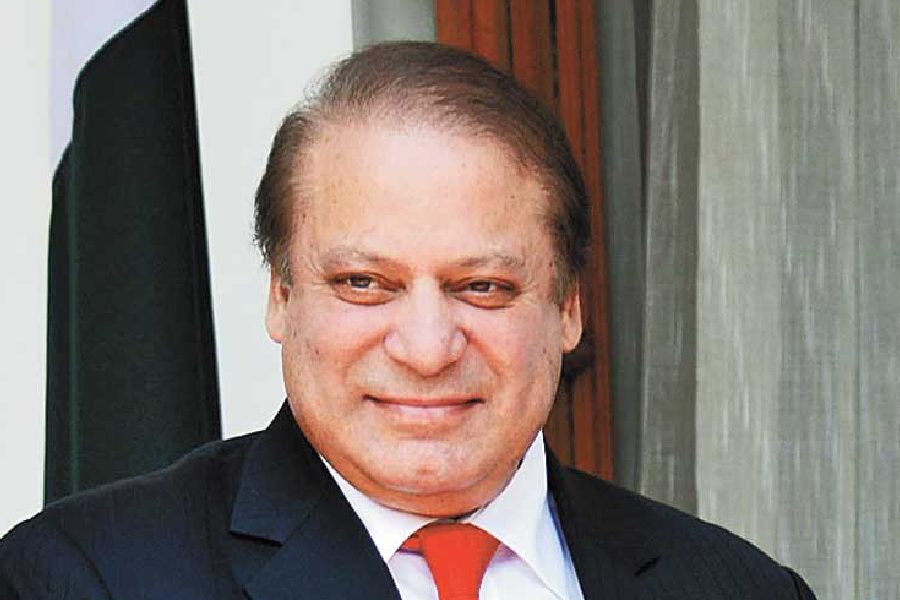The Islamabad High Court on Tuesday acquitted Pakistan Muslim League-Nawaz (PML-N) supremo and former prime minister Nawaz Sharif in the Al-Azizia Steel Mill corruption case, removing a major legal hurdle in his way to leading his party in the upcoming elections.
Sharif, 73, was sentenced to seven years in jail and imposed a heavy fine by an anti-corruption court in December 2018 after he failed to convince the court that he had nothing to do with the steel mill set up by his father in 2001 in Saudi Arabia.
He has already been acquitted in the Avenfield case in which he was convicted in July 2018 and sentenced to 10 years in Jail. He also got relief in the Flagship corruption case in which he was declared innocent by the court in 2018 but the acquittal was challenged in the IHC by the National Accountability Bureau (NAB).
A division bench comprising IHC Chief Justice Aamer Farooq and Justice Miangul Hassan Aurangzeb heard the appeal against conviction by the anti-corruption court in 2018 in a case filed by the NAB, the national accountability watchdog.
During today's hearing, Sharif's lawyer Amjad Pervaiz said that no evidence was presented against and he was asked to prove his innocence. He said there was no previous assets case where the accused was convicted without presenting clear proof of ownership.
"The prosecution could not present a single piece of evidence. Therefore, the burden of proof cannot be transferred onto the accused," he said as he wrapped up his arguments.
The chief justice asked why the NAB prosecutor failed to produce. “You were the prosecutor. Tell us what evidence you possess. Tell us on what basis you transferred the burden of proof onto the accused,” he said.
The NAB asked to send back the case to the trial court for its re-trial but it was rejected by the court.
At the end of the hearing, the court granted the appeal by Sharif on merit, meaning that he was acquitted in the Al-Azizia corruption case which was based on the charge of asset beyond means.
The former premier was present at the time of the hearing and should have been relieved by the decision by the court. It is the same division bench that acquitted Sharif in the Avenfield corruption case on November 29.
With the latest acquittal, Sharif has been exonerated in all three cases, including the Avenfiled case, Flagship case and Al-Azizia case.
Sharifs were living in exile in Saudi Arabia at the time the mill was set up after the former military ruler Pervez Musharraf toppled the government in 1999 and bundled out of the country the former first family. Sharif’s son Hussain Nawaz was the administrative head of the mill.
The NAB maintained that the mill was established by using the corruption money Sharif accumulated during his rule, a charge he denied while saying that part of the funds for the facility were provided by the Saudi government.
It was also stated during the hearing that the Qatari royal family had invested in the mill while Sharif’s father Muhammad Sharif chipped in with $5 million as his share.
However, the defence side failed to provide credible proof of funds used to set up the mill and the former premier was declared as guilty.
Sharif filed an appeal in the Islamabad High Court but he left Pakistan in 2019 and the process was stalled as he was declared absconder for failing to appear in the court. Sharif, the only Pakistani politician who became the prime minister of the coup-prone country for a record three times, returned to the country in October to lead his party in general elections scheduled in February 2024. On his return in October, his appeal was revived.
Sharif landed into hot waters in 2017 when disqualified by the Supreme Court following a protracted tussle with the military establishment. The top court ordered NAB to prosecute in three cases. He was convicted in two and acquitted in one.
His turnaround has been a change of hearts on the part of the establishment which ran into trouble in relations with former cricketer-turned-politician Imran Khan, who is in jail while Sharif is getting relief from courts.
Sharif remains disqualified from holding public office by the Supreme Court in the Panama Papers case, and in a later judgment interpreting a provision of the Constitution that involves honesty and trustworthiness — the top court ruled that the disqualification is for life.
However, earlier this year amendments were made to the Elections Act, 2017 by the government led by Nawaz Sharif's younger brother and PML-N party president Shehbaz Sharif, limiting the disqualification of lawmakers to five years with a retrospective effect.
The Supreme Court has decided to form a larger bench to determine once and for all whether aspirants disqualified can contest polls in light of the amendments in the Elections Act, 2017.
Except for the headline, this story has not been edited by The Telegraph Online staff and has been published from a syndicated feed.











